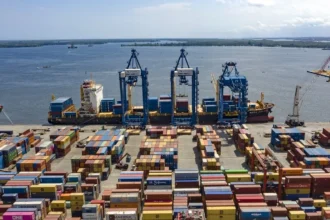Until now, interbank transfers across WAEMU were still constrained by delays and relatively high costs. With the launch of the PI-SPI, transactions become instant, available 24/7, and aligned with global best practices. This marks a structural revolution that will generate long-term economic and social impact well beyond the banking sector.
Economically, the platform will cut both transaction costs and settlement times. It creates a smoother flow of payments and gives merchants, SMEs, and even informal sector operators access to a modern, secure, and affordable tool. The result should be a boost in commercial activity and greater integration into the formal economy. Another critical impact lies in the progressive reduction of cash use. Heavy reliance on physical currency has long limited financial traceability, weakened transaction security, and slowed fiscal modernization. By promoting electronic payments in everyday life, the PI-SPI is expected to shift the balance away from cash, creating safer and more transparent financial flows.
Financial inclusion at the heart of the reform
The social implications are no less significant. Banking penetration in WAEMU remains low, averaging 23% across the region, with wide disparities between member states. In Senegal, for instance, the rate reached 42% in 2023 still far from the levels needed for inclusive growth.
By making payments interoperable and accessible to all, the PI-SPI will significantly raise these figures over the coming years,
explains the digital finance and financial inclusion expert Mouhamadou Moustapha Mbodj. For him, the system is not just a technical platform but a driver of democratization in access to financial services, particularly for the millions currently excluded from traditional banking.
Reshaping the banking and payments ecosystem
The PI-SPI also represents a turning point for the regional financial sector. By bringing banks, fintechs, and mobile money providers in to a shared infrastructure, it breaks down long-standing silos. The initiative should contribute not only to a higher banking penetration rate but also to the development of new digital products tailored to households, SMEs, and the diaspora. The rise of fintechs in WAEMU is already supported by BCEAO’s Instruction No. 001-01-2024, which regulates payment services and sets the foundation for a more competitive and open market. For fintechs, this represents a historic opportunity to scale solutions in payments, savings, and credit, backed by a reliable regional infrastructure.
Mobile money providers, however, will face a necessary reinvention of their business models. Their growth has so far relied on free deposits and fees on transfers. The arrival of near-zero transfer costs will challenge that model, forcing them to rethink revenue sources. While this shift could disrupt current balances, Mbodj views it as positive for the ecosystem: stronger competition will push customers to expand their use of electronic payments, accelerating the digitalization of the regional economy.
Enabling access to open banking straight through processing
Beyond instant transfers, the PI-SPI lays the groundwork for the next major step: open banking. Already adopted in many parts of the world, open banking allows customers to grant secure access to their financial data to third-party providers, enabling the design of new, value-added services. The Brazilian Pix system is a telling example: launched in 2020 by the country’s central bank, it has helped bring nearly 75% of the population into the banking system within five years, while massively accelerating the digitalization of payments. Mbodj believes WAEMU can follow a similar path, combining financial inclusion, innovation, and modernization. The PI-SPI should not be seen as an end in itself but rather as the starting point of a deeper transformation. By fostering integration, inclusion, and innovation, it has the potential to reposition West Africa as one of the world’s emerging digital economies.
















